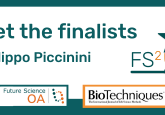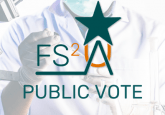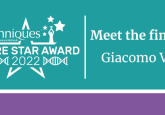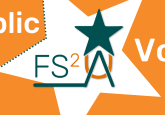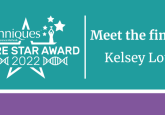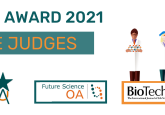Meet the stars: William T. Tran
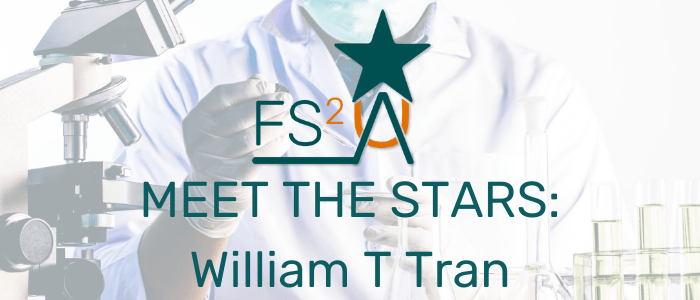
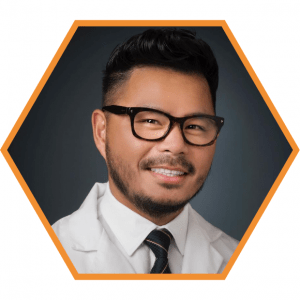 Meet the stars of the 2020 Future Science Future Star Award.
Meet the stars of the 2020 Future Science Future Star Award.
William is an Assistant Professor in radiation oncology at the University of Toronto (Canada), specializing in radiomics and breast cancer. He is a finalist in the Future Science Future Star Award 2020, run by BioTechniques and Future Science OA. Here he discusses his career so far, as well as his aims for the future.
Please tell us about your career to date
I am a Radiation Therapist Clinician Scientist and Assistant Professor in radiation oncology at the University of Toronto. My area of research and clinical practice is focused on developing novel diagnostic tools and enhancing treatment efficacy for women with locally advanced breast cancer.
The best part about my career is that I have the opportunity to provide radiation oncology care for women with high-risk breast cancer, and this informs my research program.
What made you choose a career in your field?
I grew up in a household of all women. This has greatly shaped my interest in improving women’s health. Over the years, as I moved around different areas of research and clinical practice, I encountered my mentor who was a breast radiation oncologist and he introduced me to the complex field of breast cancer treatment and research. I learned about quantitative imaging science and later pursued my PhD in breast imaging and radiomics. Together, this has solidified my career aims that also aligns so closely with my personal values.
What are the main highlights of your career so far?
I am proud of the care I provide to patients. I treated a very young lady in her early thirties who unfortunately developed metastatic breast cancer. While she was in palliative care, I continued visiting her weekly and I learned a lot from her. These experiences remind me to keep the humanity in research, as well as it underscores the importance of maintaining patient-focused care in my clinical work. In terms of my academic achievements, I am most proud of obtaining my first large-scale grant as principal investigator within the first two years of my research career. The discovery that I find the neatest from my lab has been the development of automated machine learning systems to help pathologists detect and diagnose breast cancer tissue rapidly. My lab is also showing that computer-vision based algorithms can detect nuances in tumor-cellular patterns in breast cancer tissue under the microscope.
What is the most difficult challenge you have encountered in your work and how did you overcome it?
The greatest challenge in my work to date has been managing patients and research during the COVID pandemic. Firstly, adapting to new care guidelines was a challenge, but through constant teamwork and maintaining focus on patients, we have been able to overcome these challenges. Second, maintaining research activities and funding has been met with challenges during COVID. Many of the granting agencies have scaled back on existing funding. Unfortunately, the downstream effect has been that many labs across Canada, which are focused on other areas of research have had to lay-off their research staff due to shortages in funding. However, as a principal investigator, I had decided at the beginning of the pandemic to maintain all employment of my lab personnel during COVID. I secured funds to ensure a guaranteed salary for the research staff. I also set up virtual environments to continue the research. We have maintained our productivity and have come together to achieve our goals.
Which one publication of yours would you say best highlights your career to date?
The publication that best highlights my career to date includes my work on developing pre-treatment imaging biomarkers for chemotherapy response in breast cancer, using diffuse optical spectroscopy (DOI: 10.1038/bjc.2017.97). This area of research highlights all of my major interests, including breast cancer biology, imaging biomarkers, machine learning and improving therapy strategies for women with high-risk breast cancer. This work was carried out during my training and it defined my chosen career path. Overall, the work presented in the publication has seeded exploration and innovation to different areas of research and has forged new collaborations for career development. Since then, it has also led to exploring other imaging biomarkers to other cancer sites such as head and neck cancer, in which we published the work in Future Science OA (DOI: 10.2144/fsoa-2019-0048).
What are your main aims for the future?
I hope to make a significant contribution and to continue to give back to society. As Vietnamese refugees to Canada, my family and I have always strived to retribute the kindness we received and make meaningful contributions to society. I hope that my career in the future will help meet these aims. In particular, I wish to build programs that will help women cope with aggressive breast cancer. I am in the process of creating a no-fee retreat for women diagnosed with aggressive breast cancer. My hope is to develop a support group program that will help improve body-image issues caused by chemotherapy and other treatments, improve overall mental and emotional wellness, and provide workshops for women who may not have the family and social support systems. Overall, my aim is to provide women with as many resources as possible, which include improved diagnosis, cancer care and cancer social support.
Where do you hope to see yourself in 5 years?
My hope in 5 years is to fully develop artificial intelligence technologies that will expeditiously diagnose aggressive breast cancer. In doing so, the research will also offer women tailored treatments based on biomarker-driven approaches, which will prolong their lives. I hope to continue on as a clinician scientist, however, increase my involvement with governing clinical and scientific programs both locally (e.g. clinical training programs, local oversight and building research infrastructure and programs) and nationally (e.g. steering committees for Canadian Institutes of Health Research). Being involved with these organizations will ensure robust training of future scientists and clinicians, and it will give me the opportunity to help create an excellent environment for future leaders and innovators in cancer research and clinical care.
Why do you feel you deserve this award?
I feel deserving of this reward because I believe that I have fully dedicated my work and mission to improving the lives of women with high-risk breast cancer. I am also applying on behalf of my research team. In light of the current challenges, such as COVID, my team has put tremendous effort and hard work into achieving our team goals. I believe that we have done an amazing job together over the past year. If successful, I hope to share this award with my entire team.
Nominated by: Dr. Gregory J. Czarnota (Sunnybrook Health Sciences Centre)
Twitter: @willteetoronto
Instagram: willieteetoronto
LinkedIn: William T Tran
